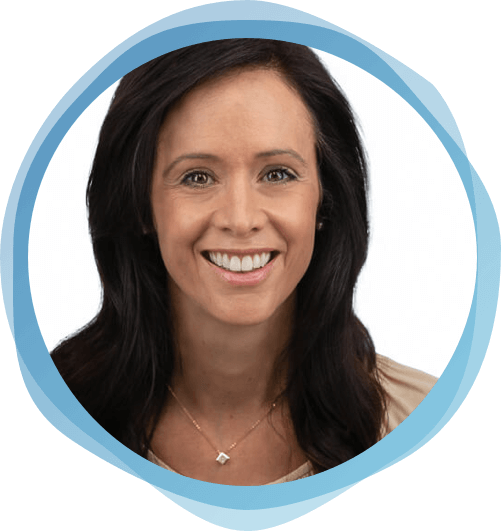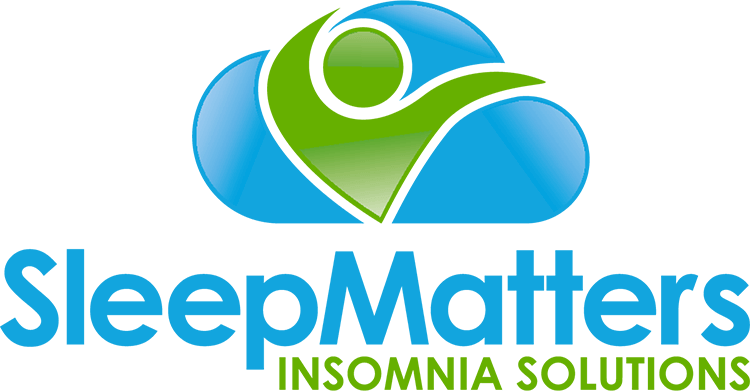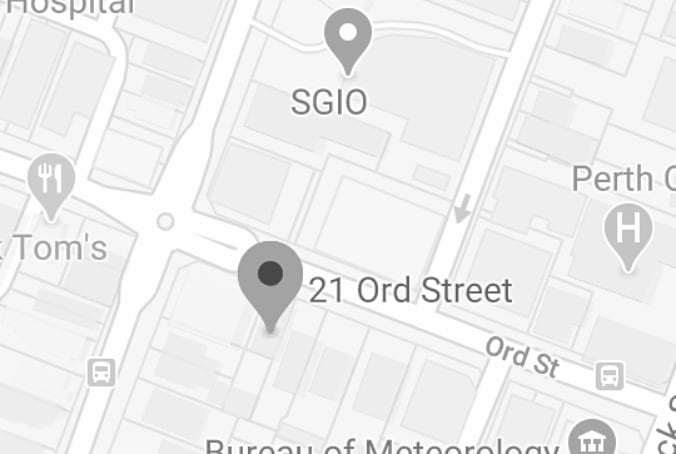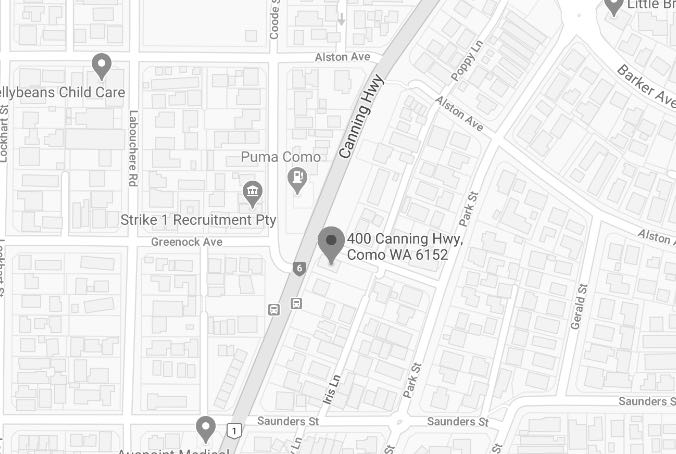Trouble sleeping:
how can we help?
Sleep Matters is a team of health professionals with specific training and experience in behavioural sleep medicine. Our founder, Dr Melissa Ree, trained at the University of Oxford. Since returning to Perth, she has remained active in the research and treatment of sleep disorders, and holds an academic position at the University of Western Australia.

Sleeping poorly? How can a psychologist help?
Insomnia is a very common disorder. Thankfully, over the last 40 years, highly effective treatments of this condition have been developed and tested in clinical trials. People are sometimes surprised to be referred to a psychologist for their poor sleep, as it is not well known that the recommended treatment for insomnia, CBT-I, is a speciality of psychology. All of the psychologists at Sleep Matters have specific training in treating insomnia and other sleep disorders.
The treatment with the most evidence behind it is not a medication, it’s called Cognitive Behaviour Therapy (CBT). This effective long term therapy treats the underlying causes of your sleep problem. This often involves changing your behaviours, and your thought patterns that keep the problem going. Clinical psychologists are trained in CBT, and Sleep Matters psychologists are also trained in sleep medicine and CBT for Insomnia.
Often, 4 to 6 sessions is all you require to treat your sleep problem.
We can help you in-person in our clinics, as well as online, via telehealth consultations.
Cognitive Behaviour Therapy-Insomnia is the recommended first-line treatment in many countries including Australia, the UK, and the USA. Research has demonstrated that it is more effective than sleeping pills in the long term. As a short term treatment, sleeping pills may play a role. But long term CBT-I is more effective.
To effectively deliver CBT for Insomnia, it is important that the treating clinician has specific training and experience in treating sleep problems. A scientific understanding of sleep and how it is regulated is the starting point. Training and experience with helping people to identify and change unhelpful insomnia relevant thoughts, beliefs, and behaviours is also vital.
At Sleep Matters, we are a team of clinical psychologists (Jeffery & Ree Clinical Psychologists). We have extensive training and experience in helping you to manage sleep problems, particularly insomnia. All of our clinicians have at least 6 years of university training.
We have helped thousands of people with long-term sleep problems, including those who have been dependent on sleeping medication for a long time.
When it comes to sleep, a psychologist is an invaluable partner and service provider.
We also provide general clinical psychology services, which means that symptoms of stress, anxiety, and low mood can also be addressed if required.
We offer the following sleep-related services:
Cognitive Behaviour Therapy (CBT) for Insomnia. We offer assistance to children (5+), adolescents, and adults.
Mindfulness-based approaches which are now a recommended treatment for Insomnia. Identification and treatment of other psychological difficulties impacting on sleep (e.g., anxiety, depression, stress).
Assistance with adjusting to using CPAP therapy for obstructive sleep apnoea.
Excessive daytime tiredness and hypersomnia.
Reducing reliance on sleeping tablets.
Light therapy to treat Circadian rhythm disorders (extreme night owls or early birds).
Optimising sleep in the context of shift-work.
Treatment for recurrent nightmares.
Overnight, at-home assessment of your sleep using a simple EEG (just three electrodes on the back of your neck). This is very useful for assessing how much you really sleep.
Group Therapy: a four-week, Saturday morning program for insomnia developed by Dr Ree that is run through The Marian Centre several times a year.
Group/corporate/school workshops on healthy sleep & Insomnia management.
What will I learn during CBT-Insomnia?
Our highly trained team of psychologists will make an individualised treatment plan. Our aim is to help you understand your sleep and how to fix it, so you are fully empowered to treat sleep difficulty yourself in the long-term.
Typical components of CBT-I include the following:
Science-based facts about sleep to help you better understand what is ‘normal’.
Learning how sleep is regulated.
Identifying the three barriers to sleep and learning how to manage them to maximise sleep improvement.
How to make adjustments to your sleep routine to fall asleep faster and reduce night-time wakings.
Strategies to calm a busy mind and/or tense body.
Strategies for improving daytime energy and managing tiredness.
How to reduce worry about sleep?
The use (and misuse) of light in assisting sleep.
How to reduce reliance on sleeping tablets (where appropriate).
Stress and mood management.
Where to find additional support if required (self-help resources, referral for treatment of other sleep disorders such as sleep apnea)?
You will receive a written handout to complement the consultations.
We also use sleep logs and questionnaires so that we can track your progress from start to end of treatment.
Addressing the “Three Barriers to Sleep”
There is a great deal of information on the internet about how to get a good night's sleep. The volume of information can be overwhelming. In order to simplify things, Dr Ree suggests thinking about ‘the three barriers to good sleep'. These barriers are addressed in our sleep treatments.
Low Sleep Drive
Sleep drive is a biological term for how much our body needs sleep at a particular point in time. When sleep drive is high we feel sleepy and when it is low we don't. Typically, the longer you have been awake, the higher your biological drive for sleep will be. For restful nighttime sleep, your sleep drive needs to be high.
When you are suffering from long term Insomnia you may actually have a low sleep drive and this is a factor maintaining your poor sleep. It is possible to feel fatigued but not sleepy. This is often the case in Insomnia ("I'm tired but wired"). Napping, spending extra time in bed to make up for poor sleep, and reduced daytime activity levels can all lead to reduced sleep drive. Working to increase the sleep drive is something we address in treatment for Insomnia.
Body Clock Problems
The body has an internal clock which is managed deep in the brain (the suprachiasmatic nucleus). The body clock regulates the release of hormones such as melatonin, and causes ebbs and flows in energy levels and sleepiness during the day. The operation of the body clock means that people often feel more alert mid-morning, sleepy mid-afternoon and sleepy at bedtime.
Sleep difficulties related to the body clock have been linked to the abnormal timing of melatonin production. If melatonin is released too late, this can mean difficulty getting to sleep. If melatonin is released too early, this can mean falling asleep early but then waking at 3 or 4am. Establishing a regular sleep routine, careful timing of exposure to bright light, and/or carefully timed melatonin tablets can be very helpful in managing body clock related sleep problems.
Arousal
Arousal can be:
- Physical:
tense muscles, racing heart, butterflies in the stomach - Emotional:
feeling anxious, fed up, sad, frustrated - Mental:
busy mind, worrying, planning
Each of these can get in the way of restful slumber. Being able to recognise and manage increased arousal levels is an important part of learning to sleep well again.
Arousal may be increased by many things such as increased stress levels, worry about sleep, anxiety problems, caffeinated or sugary food/drinks, stimulant medications or illicit drugs, and cigarettes during the day and before bed.


